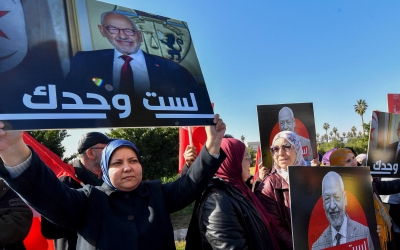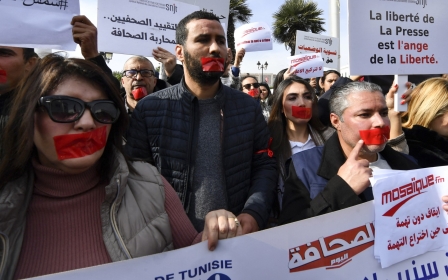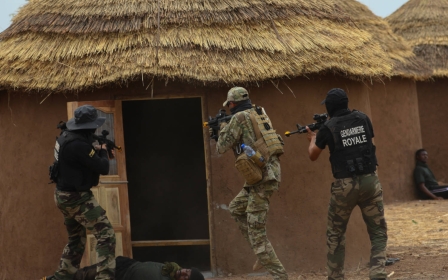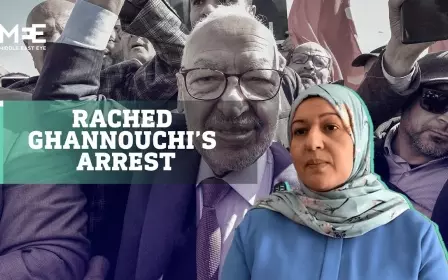Tunisia: Book comparing Kais Saied to Frankenstein's monster confiscated
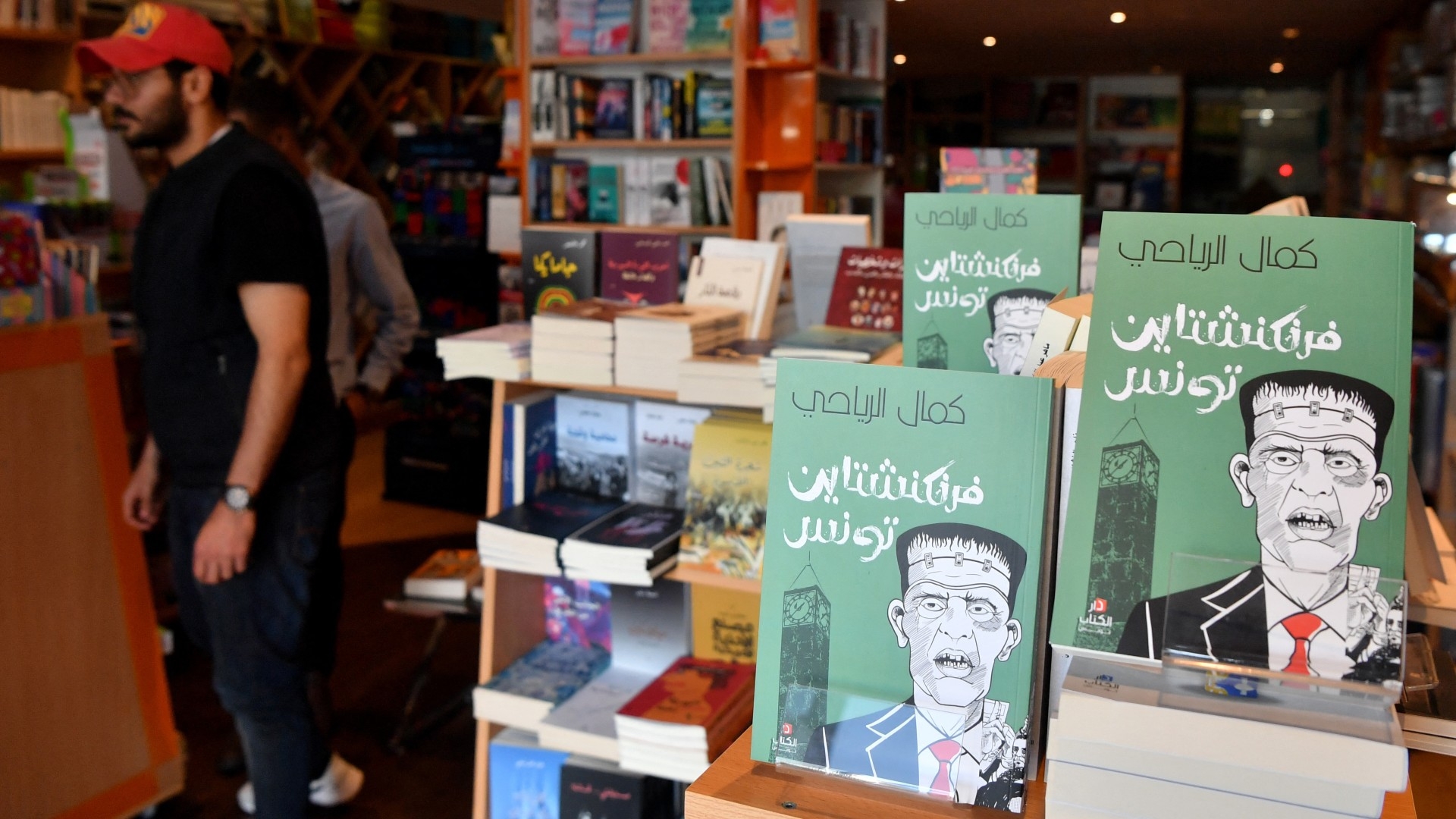
Tunisian authorities closed down a stand at a literature fair in the capital on Friday due to the presence of a book comparing President Kais Saied to Frankenstein's monster, just minutes after the leader hailed freedom of thought.
Habib al-Zoghbi, director of Dar Al-Kitab (The House of Books), told Tunisian radio station Mosaique FM that his publishing house's display was closed at the 37th Tunis International Book Fair due to the possession of an "unauthorised book".
"The Minister of Culture abused our rights, withdrew [The Tunisian Frankenstein], and closed the entire stand... which is a decision that violates the internal law of the exhibition."
Moments earlier, Saied told reporters at the fair: "It is important to liberate thinking because we cannot accomplish anything with rigid thoughts."
The head of the fair's organising committee told local media that Dar al-Kitab’s stand was shut down due to The Tunisian Frankenstein not being included in a list of books authorised for publication. The book was also confiscated.
New MEE newsletter: Jerusalem Dispatch
Sign up to get the latest insights and analysis on Israel-Palestine, alongside Turkey Unpacked and other MEE newsletters
However, Zoghbi told Mosaique FM it was common practice for newly published books to be brought to the exhibition.
He added that the content contained no harm to state security, and instead posed questions on the country's rulers from the first president, Habib Bourguiba, to Saied.
The book depicts the current president as a version of Frankenstein's monster, Mary Shelley's character from the 1818 novel, created by a people who reject Tunisia's political system after its 2011 revolution.
PEN condemns seizure
Tunisia has been engulfed in political and economic crises since July 2021, when Saied unilaterally suspended parliament and dissolved the government in what has been dubbed a "constitutional coup".
He subsequently ruled by decree, before pushing through a new constitution that enshrined his one-man rule.
Amine Snoussi, a Strasbourg-based Tunisian analyst, said the confiscation represent's what Saied's "regime is all about".
"A book, a song or an article is a threat to his power. Free speech cannot be possible when the president is arresting his opponents, banishing books and putting pressure on justice and police," Snoussi told MEE.
He added that the president had promised during his election in 2019 to give people power, only to "destroy any counter-power".
The book's author, Kamal al-Riahi, who is an Arabic literature professor at the University of Toronto, told AFP that Tunisian authorities had been "looking for a pretext to ban the book".
On Friday, PEN Canada condemned the book confiscation and said it was "particularly disappointing" following Saied's remarks on free thought.
Footage posted on social media showed several other publishers closing their stands at the fair in solidarity with Dar al-Kitab.
In February, MEE reported that Saied's continuing power grab had resulted in freedom of expression coming under attack.
That month, police raided the home of Noureddine Boutar, the head of Mosaique FM, and opened criminal proceedings against Mohamed Mehdi Jelassi, the head of Tunisia's Journalists Syndicate.
"The aim of this trial is to intimidate me," Jelassi told MEE at the time. "And also [to] intimidate other activists who champion the truth and defend the freedom of media and expression."
Middle East Eye delivers independent and unrivalled coverage and analysis of the Middle East, North Africa and beyond. To learn more about republishing this content and the associated fees, please fill out this form. More about MEE can be found here.


